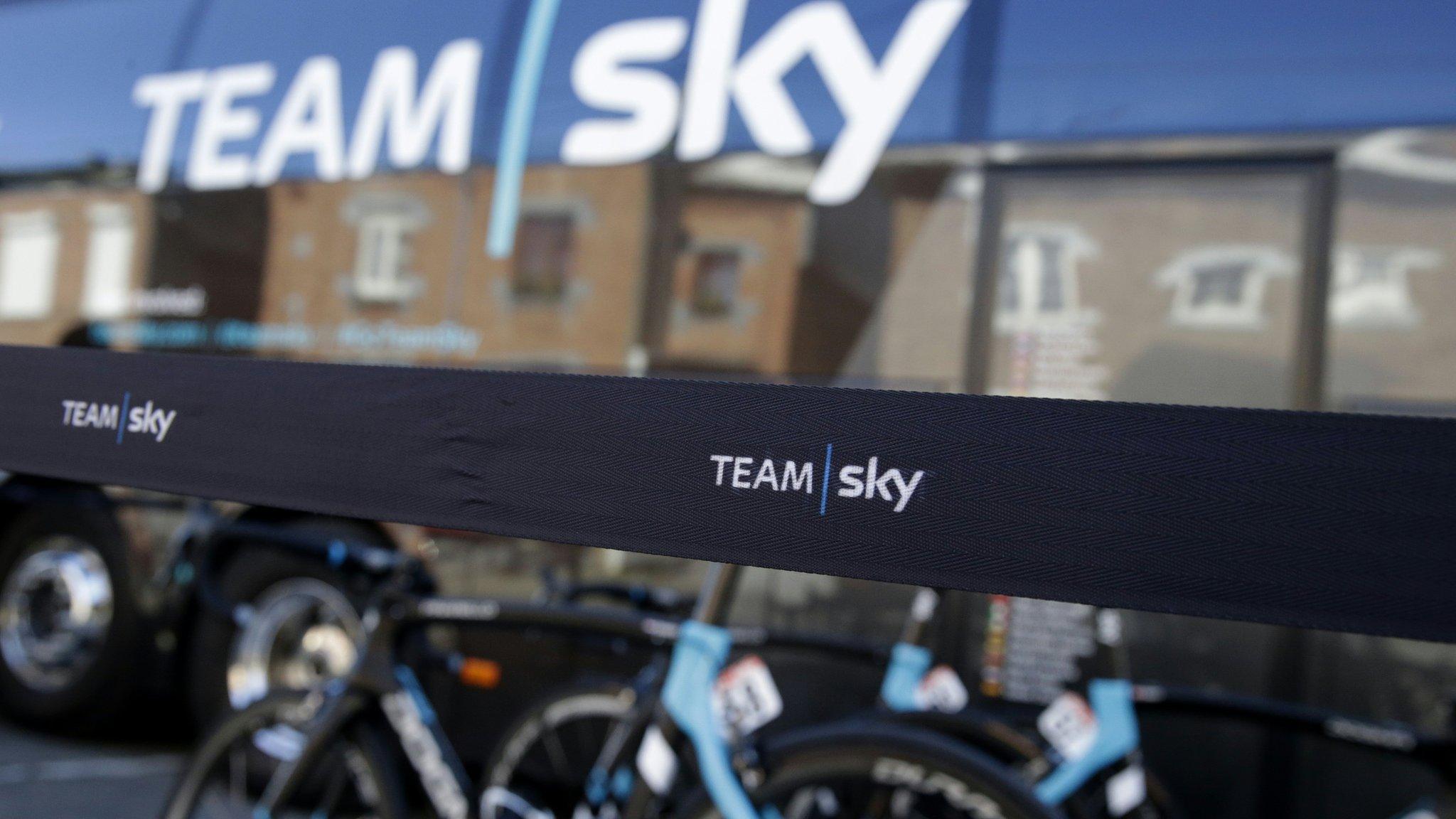Cycling's integrity paramount - UCI chief Brian Cookson
- Published
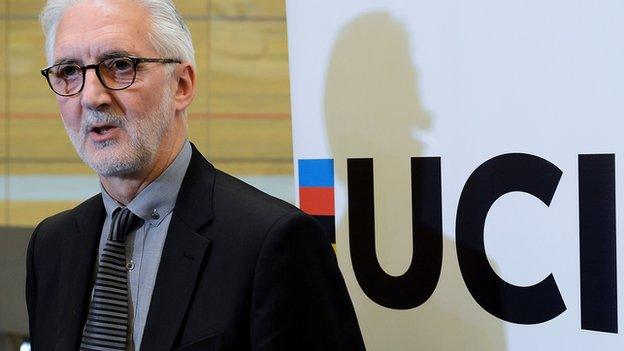
Cookson became UCI president in September 2013, beating Pat McQuaid in a vote
Protecting cycling's integrity is an "absolute priority" for 2017 says UCI president Brian Cookson.
The use of therapeutic use exemptions (TUEs) in the sport has been questioned, while Femke van den Driessche became the first rider to be caught "mechanical doping" in April.
"The biggest threat in 2016 was to the credibility of our sport," said Cookson.
"Our anti-doping programme is rightly regarded as one of the leaders."
There were 22,652 samples from cyclists tested in World Anti-Doping Agency accredited laboratories in 2015, with 244, or 1.1%, returning adverse results.
In addition, thousands of bicycles, including 3773 at the Tour de France, have been scanned for hidden motors.
However the Fancy Bears' computer hack, external in September published confidential details of athletes' TUEs, which allow temporary use of prohibited substance on medical grounds, and questioned whether the system was being abused.
September: Wiggins answers TUE questions
British cycling legend Sir Bradley Wiggins defended his use of powerful anti-inflammatory drug triamcinolone before the 2011 and 2012 Tour de France races saying the medication "put him back on a level playing field" as he suffered from allergies and respiratory problems and it did not give him any "unfair advantage".
Cookson defended the system saying the levels of scrutiny on each TUE application was "a higher standard than required by international norms".
"The UCI strengthened its TUE assessment process in June 2014 during the first year of my presidency," said Cookson.
"This change put in place a more robust, independent three-person TUE Committee made up of independent experts that requires unanimity before sanctioning any TUE request.
"The number of TUEs the UCI has sanctioned in recent years is declining - from 31 in 2013 to 13 last year."
"Perfect parity" in track cycling
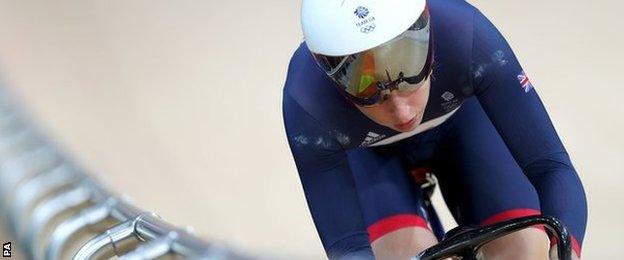
Laura Trott competes on the flying lap at Rio 2016
Cookson welcomed the changes to the track cycling disciplines with the introduction of a women's madison "bringing perfect parity between men's and women's track cycling events".
The omnium - the discipline in which Britain's Laura Trott is world and Olympic champion - will be cut from six to four events.
The timed elements - individual pursuit, time trial, flying lap - have been dropped with a tempo race added to the scratch race, elimination race and points race to condense the event into a one-day competition focused on endurance.
- Published19 December 2016
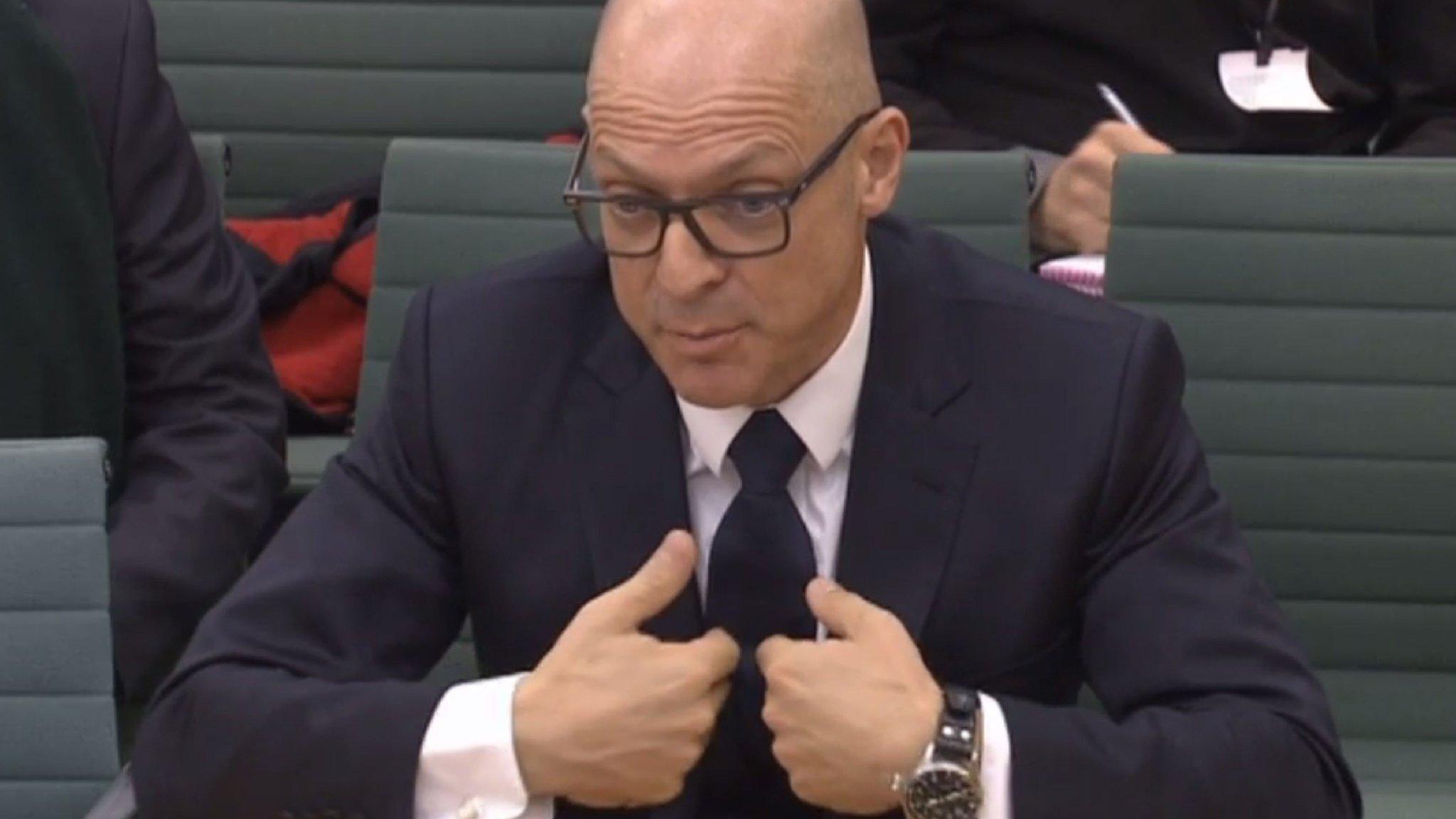
- Published28 October 2016
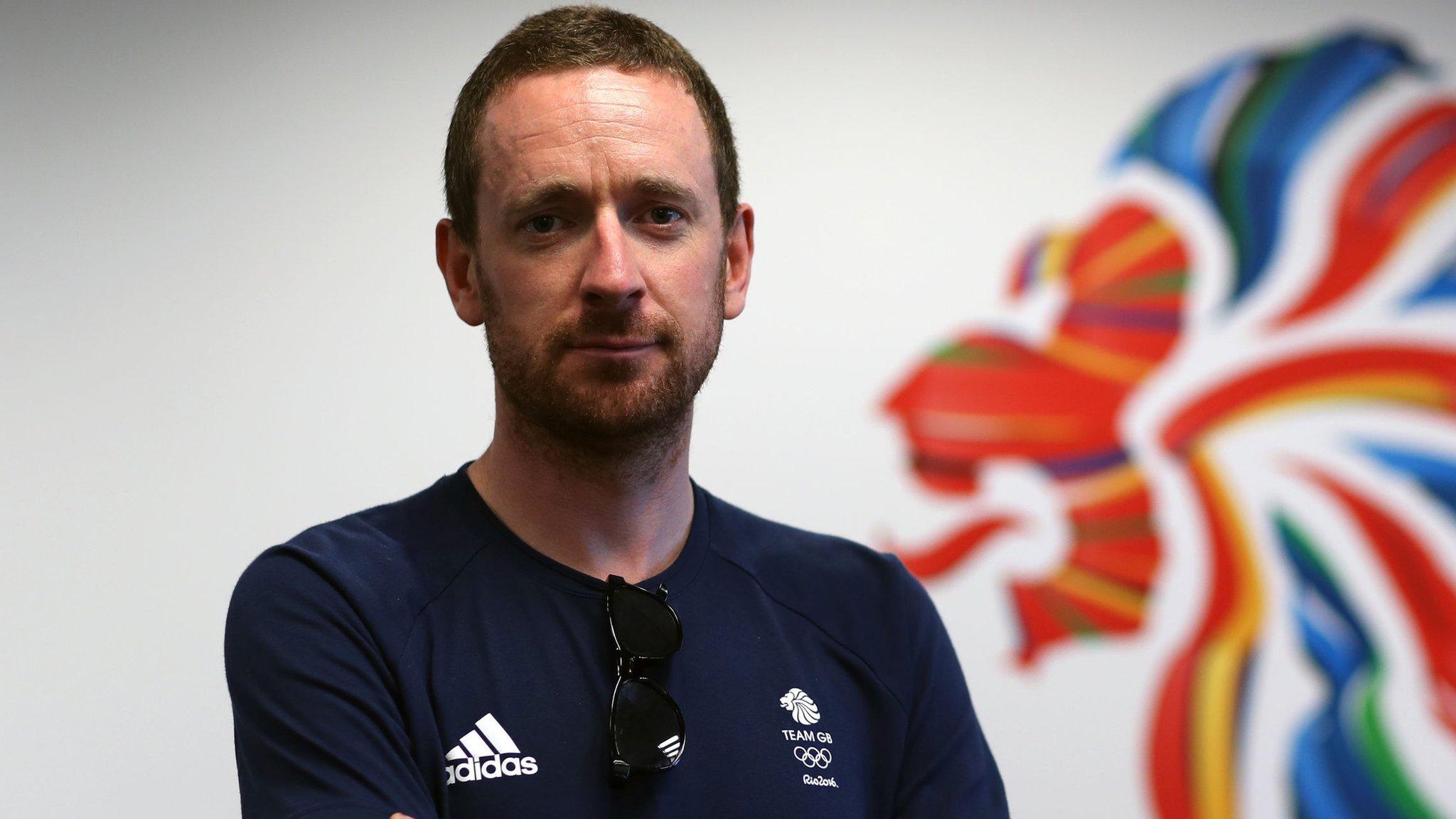
- Published13 October 2016
